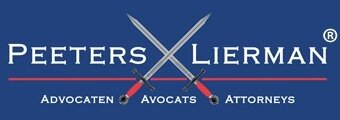Best Corporate Governance Lawyers in Bruges
Share your needs with us, get contacted by law firms.
Free. Takes 2 min.
List of the best lawyers in Bruges, Belgium
About Corporate Governance Law in Bruges, Belgium
Corporate governance refers to the system of rules, practices, and processes by which a company is directed and controlled. In Bruges, as in the rest of Belgium, corporate governance laws ensure that companies operate in a transparent, ethical, and efficient manner while balancing the interests of shareholders, management, customers, suppliers, financiers, government, and the community. Belgian company law, notably the Code of Companies and Associations (CCA), sets out specific obligations regarding how businesses should be structured and managed. For companies operating or headquartered in Bruges, adherence to both national statutes and local regulations is crucial to maintain compliance and foster trust among stakeholders.
Why You May Need a Lawyer
There are various situations in which legal advice on corporate governance is essential. If you are starting a new company, restructuring existing governance frameworks, or seeking to ensure compliance with Belgian corporate obligations, an experienced lawyer can provide invaluable guidance. Common scenarios include navigating board member appointments and removals, handling shareholder conflicts, ensuring transparent reporting to regulatory authorities, or implementing anti-corruption policies. Additionally, mergers, acquisitions, or changes in capital structure can raise complex legal issues requiring professional advice to minimize risks and prevent legal disputes.
Local Laws Overview
In Bruges, corporate governance is primarily governed by Belgian national legislation, particularly the Code of Companies and Associations (CCA), which came into effect in 2019. The CCA outlines the rights and obligations of directors, shareholders, and other stakeholders within different company types such as public limited companies (NV/SA), private limited companies (BV/SRL), and cooperatives. Key local aspects include:
- Strict rules on the composition and duties of boards of directors
- Mandatory disclosure and reporting requirements to regional and national authorities
- Enforcement of conflict-of-interest policies and procedures
- Protections for minority shareholders and whistleblowers
- Guidelines on general meetings, voting procedures, and resolutions
- Compliance with regional corporate tax registration and regulatory procedures
Additionally, companies listed on the Belgian stock exchange must comply with the Belgian Corporate Governance Code, which sets best practice standards for transparency, accountability, and board effectiveness.
Frequently Asked Questions
What types of companies are subject to corporate governance laws in Bruges?
Most corporate entities, including public and private limited companies, partnerships, and cooperatives, must comply with Belgian governance regulations, regardless of their size or number of employees.
Does my small or family-owned business need to follow the same rules?
While the rules may be less stringent for small companies, basic requirements such as accurate recordkeeping, annual meetings, and director duties still apply. Some exceptions exist for microenterprises.
Who enforces corporate governance laws in Bruges?
Corporate governance laws are enforced by various government bodies, including the local commercial court, the Federal Public Service for Economy, and, for listed companies, the Financial Services and Markets Authority (FSMA).
What are my duties as a company director?
Directors are expected to act in good faith, avoid conflicts of interest, maintain company records, and safeguard the interests of all stakeholders in the enterprise.
How often are shareholders' meetings required?
Annual general meetings (AGMs) are mandatory and must be held within six months after the end of each financial year.
What happens if there is a dispute among shareholders?
Shareholder disputes are governed by the company’s articles of association and Belgian law. Mediation or legal action may be required depending on the severity of the disagreement.
Are there penalties for not complying with governance requirements?
Yes, breaches can result in fines, director disqualification, or, in severe cases, dissolution of the company.
Do Belgian companies have to observe any anti-corruption policies?
Yes, both local and international anti-corruption laws apply, requiring companies to implement adequate policies and provide training to staff to prevent bribery and corruption.
How do we update our articles of association?
Amendments to articles must be approved by the appropriate company body, typically the general meeting, and filed with the Belgian Crossroads Bank for Enterprises.
Is corporate governance different for non-profit organizations?
Non-profit organizations must also adhere to governance rules, tailored specifically to their structure under the code, with special requirements for board composition and transparency.
Additional Resources
If you need further information, consider consulting the following local and national organizations:
- Federal Public Service Economy - Company forms, registrations, and governance guidelines
- Belgian Official Gazette - Legal publication of company documents and corporate changes
- Financial Services and Markets Authority (FSMA) - Regulations for listed companies
- Belgian Institute of Company Auditors - Guidance for statutory auditors
- Chamber of Commerce West-Flanders - Local business support and networking
Next Steps
If you believe your company may need legal advice on corporate governance, the best way forward is to consult with a qualified Belgian corporate lawyer familiar with local and national legislation. Gather all relevant documents including your articles of association, board meeting minutes, company financials, and any correspondence relating to governance issues. Schedule an initial consultation to outline your questions and objectives, and discuss possible strategies to ensure your compliance and address any concerns. Proactively addressing legal compliance helps secure your company's reputation and long-term sustainability.
Lawzana helps you find the best lawyers and law firms in Bruges through a curated and pre-screened list of qualified legal professionals. Our platform offers rankings and detailed profiles of attorneys and law firms, allowing you to compare based on practice areas, including Corporate Governance, experience, and client feedback.
Each profile includes a description of the firm's areas of practice, client reviews, team members and partners, year of establishment, spoken languages, office locations, contact information, social media presence, and any published articles or resources. Most firms on our platform speak English and are experienced in both local and international legal matters.
Get a quote from top-rated law firms in Bruges, Belgium — quickly, securely, and without unnecessary hassle.
Disclaimer:
The information provided on this page is for general informational purposes only and does not constitute legal advice. While we strive to ensure the accuracy and relevance of the content, legal information may change over time, and interpretations of the law can vary. You should always consult with a qualified legal professional for advice specific to your situation.
We disclaim all liability for actions taken or not taken based on the content of this page. If you believe any information is incorrect or outdated, please contact us, and we will review and update it where appropriate.










